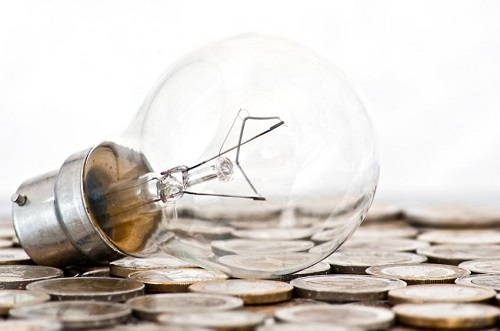You probably already know how major changes like loft insulation, cavity wall insulation etc. can help you save energy and save money at home. If you want a quick but thorough overview, you can read a quality infographic from Clydesdale Bank to explain how to save energy at home.
If you are like most people however, you may not realise how electrical appliances can drain energy and cost you money even when you have done the major energy savings changes. This piece takes a look at this. However, overlooking the importance of updating your electrical panel is also important unless you are satisfied with inefficient appliances causing havoc in your home. To remedy this, you could use Kalahari Electrical Services here.
Energy efficiency of older appliances
As energy appliances get older, they generally use more energy. An older appliance will use more energy if it is left on compared with a newer and more energy efficient one. This is why it is always important to get your appliances checked over to make sure they are running smoothly. An older appliance, such as a HVAC system, could be using a lot of your energy without you even noticing. By visiting websites such as www.servicelegends.com/spray-foam-insulation/, you can learn about what bad insulation alongside old appliances can do for your energy usage and the temperature within your home. Furthermore, if your insulation isn’t fit for purpose, your working appliances could be doing over-time without you even knowing.
Fridges and freezers are some of the most culpable here. An older fridge or freezer may generally be draining more energy than you’d think. As they get older, the seal becomes less effective leading to the use of more energy than it should. A good way to confirm if the seal is working optimally is to place a piece of paper between the seal before you close it. If you can easily pull the piece of paper away, there is a good chance that the appliance is using more energy than necessary.
As you decide to buy a new appliance, you need to watch out for the energy efficiency label. The label ranges from A+++ to G, G being the least energy efficient. All major appliances come with these labels so you need to confirm the label on your air conditioners, electric ovens, washing machines, freezers, washing machines, freezers, etc. before you make the purchase. Also, see to that your electrical panel can handle the power requirements of your modern appliances. Consult an electrical company like Asbury Electric (asburyelectric.com/service-area/deltaville-va/) that can do the inspection and tell you if your panel needs an upgrade or not.
Leaving appliances on standby
During peak hours, typically at night, the average home tends to have around 15 gadgets running simultaneously. Many of these devices come with standby modes, and it’s common for people to use them. However, certain appliances consume a significant amount of energy even in standby mode. These include cookers, microwaves, chargers, DVD players, and televisions. Moreover, HVAC systems may even pose safety risks, as standby mode can lead to the accumulation of carbon monoxide in HVAC appliances, especially if they already have any internal problems.
To mitigate energy waste and potential safety hazards, it’s essential to turn off the main switch for any appliances displaying lights or digital displays when not in use. Failing to do so can result in unnecessary energy consumption and increased expenses. Therefore, it’s wise to develop a habit of switching off appliances at the wall once they’ve served their purpose, thereby preventing energy drain and unnecessary costs.
Excessive charging
A large proportion of the population are guilty of overcharging gadgets, especially plugging them in before going to bed. A gadget that is fully charged but still plugged in may still be draining energy so unplug all gadgets once you get a notification that they are completely charged.
Overcharging your device is a sure way to reduce battery performance. The gadget will gradually lose its ability to hold a full charge over a period of time. Consider getting a timer for your outlets to avoid overcharging while sleeping or when you are away from home.
With these tips, you will be able to ensure your electrical appliances are energy saving, while retaining any monetary savings made by installing major energy saving apparatus around the home.



